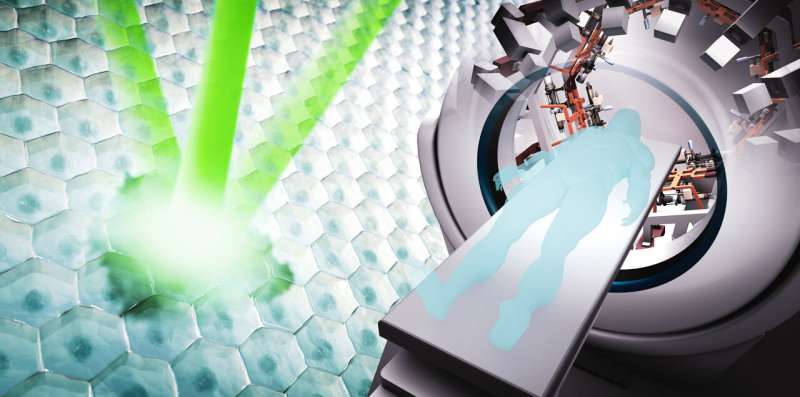Cardiovascular Disease State of the Art 2019 Ocean Edge

"The First Prison cell" is the title of a revolutionary book written in 2019 by oncologist Azra Raza from the Columbia University Medical Heart. In it, she calls for a radical shift in cancer funding away from its current predominant focus on tardily stage treatments, and towards early detection of what she calls "the first cells."
Presently thereafter, a group of noted dignitaries in the field collectively chosen The Oncology Remember Tank convened to begin hashing out this new imperative, and so bring it to fruition. In the popular magazine Scientific American, the group recently published their vision for a future when no cancer will be detected too late to care for. The logical entry betoken into this path begins with the near of import resource now available—extant cancer survivors.
I recently spoke with Azra about her plans to plant The First Cell Center for Cancer Survivors (FICCCS), and asked her to provide a summary for united states of how it might work. She said: "There is a crisis in oncology. Cost of cancer care will swallow more than 80% of cancer spending by 2030. Merely half dozen% of cancer drugs canonical between 2006–2017 showed meaningful, measurable, quality of life improvements while a good 70% evidence 0% improvement in survival. Twenty years later on the human genome was sequenced, and despite an overwhelming focus on gene-centric enquiry, very little has inverse for the cancer patient. Yes, we are curing 68% of newly diagnosed cancers, only curing with what? The same slash-poison-burn strategies. And the outcome for the 30% we are not curing, because they present with advanced illness, is no different in 2021 than information technology was in 1930.
"Trying to care for end-stage cancer with targeted therapies is like taking a heart destroyed by infarction and trying to gear up it with a coronary avenue featherbed. Information technology is clear that the only successful strategy in whatever illness is early detection, and better still, prevention. Information technology is time to apply this historic period-one-time formula to cancer.
"How early is early on? The primeval possible phase, at inception, in fact, at the Kickoff Prison cell stage. The trouble is that cancer is a silent killer. Even the earliest Stage one tumors comprise millions of cells. How practice we find the First Cell? The answer is simple: By monitoring individuals at high take a chance of developing cancer for the appearance of the Offset Cell. Who are these individuals?
"In that location are many such groups. Individuals with hereditary predispositions (Li Fraumeni syndrome, Lynch syndrome, mutations is BRCA1/2, heavy smokers). Another distinct group is individuals with a history of cancer. In fact, one in five new cancers occurs in a cancer survivor. Due to their ongoing demand for follow-up intendance, cancer survivors are already connected with the healthcare systems. They have detailed medical records bachelor. They come every six months for a regular cheque-upward to the clinic anyhow. It would be viable to monitor them and collect biospecimens on a regular footing. This group offers us the best risk of trapping the Get-go Cell. We propose to constitute The Offset Cell Middle for Cancer Survivors (FICCCS) to study this group.
"We propose to obtain non-invasive samples of blood, saliva, urine and carrion twice a year from the cancer survivors. Part of the blood volition be passed through a filter engineering to trap the Commencement Cells on the basis of size (they are giant cells), and the remainder for bio-marker and multi-omic studies.
"If two institutions (Columbia and Hopkins or MD Anderson) contribute samples on 2000 cancer survivors each per yr, in iii years, we will accept 12,000 unique subjects. It is calculated that 507 volition develop a new cancer in this period. This is a huge number and will provide a plethora of information on the foot-prints of the earliest disease including biomarkers and The First Cell trapped on filters."
Taking the next steps
Azra notes that a center such every bit this could be established on a modest budget of $1M/year for the first few years. Presumably, other institutions would follow on the heels of these initial efforts. In a recent interview for Aga Khan University as function of their Special Lecture series, Azra explores some of the cutting-edge research that tin help make this all happen. While many fancy new technologies are now bachelor for tracking populations of cells in vivo, they are frequently applied as well belatedly in the cancer cycle to exist of any existent value to the patients.
For example, we recently explored the Tapestri single-cell tracking platform adult by Mission Bio for exploring clonal populations of hemapoetic cells in astute myeloid leukemia (AML). Nosotros as well recently investigated new technologies for unmarried-cell imaging of the micrometabolic state of heterogenous cancer cells. Unfortunately, about of the disquisitional patients currently getting access to these technologies are mice, not humans. Furthermore, they are mice that already have well-developed tumors that carry little resemblance to resistant cancer cells that emerge in humans who accept already relapsed after chemotherapy.
At that place is even so a lot of institutional inertia to overcome before fully implementing large-scale First Cell detection for every man and woman. However, as cancer survival centers in the form mentioned above are established, nosotros can wait this inevitable transformation to take concur.
© 2021 Science Ten Network
Citation: The Showtime Cell: Jump-starting the global cancer revolution (2021, May xiv) retrieved 28 April 2022 from https://medicalxpress.com/news/2021-05-prison cell-jump-starting-global-cancer-revolution.html
This document is subject field to copyright. Apart from whatever off-white dealing for the purpose of private study or research, no role may be reproduced without the written permission. The content is provided for data purposes only.
dowlingquainged37.blogspot.com
Source: https://medicalxpress.com/news/2021-05-cell-jump-starting-global-cancer-revolution.html
0 Response to "Cardiovascular Disease State of the Art 2019 Ocean Edge"
Post a Comment